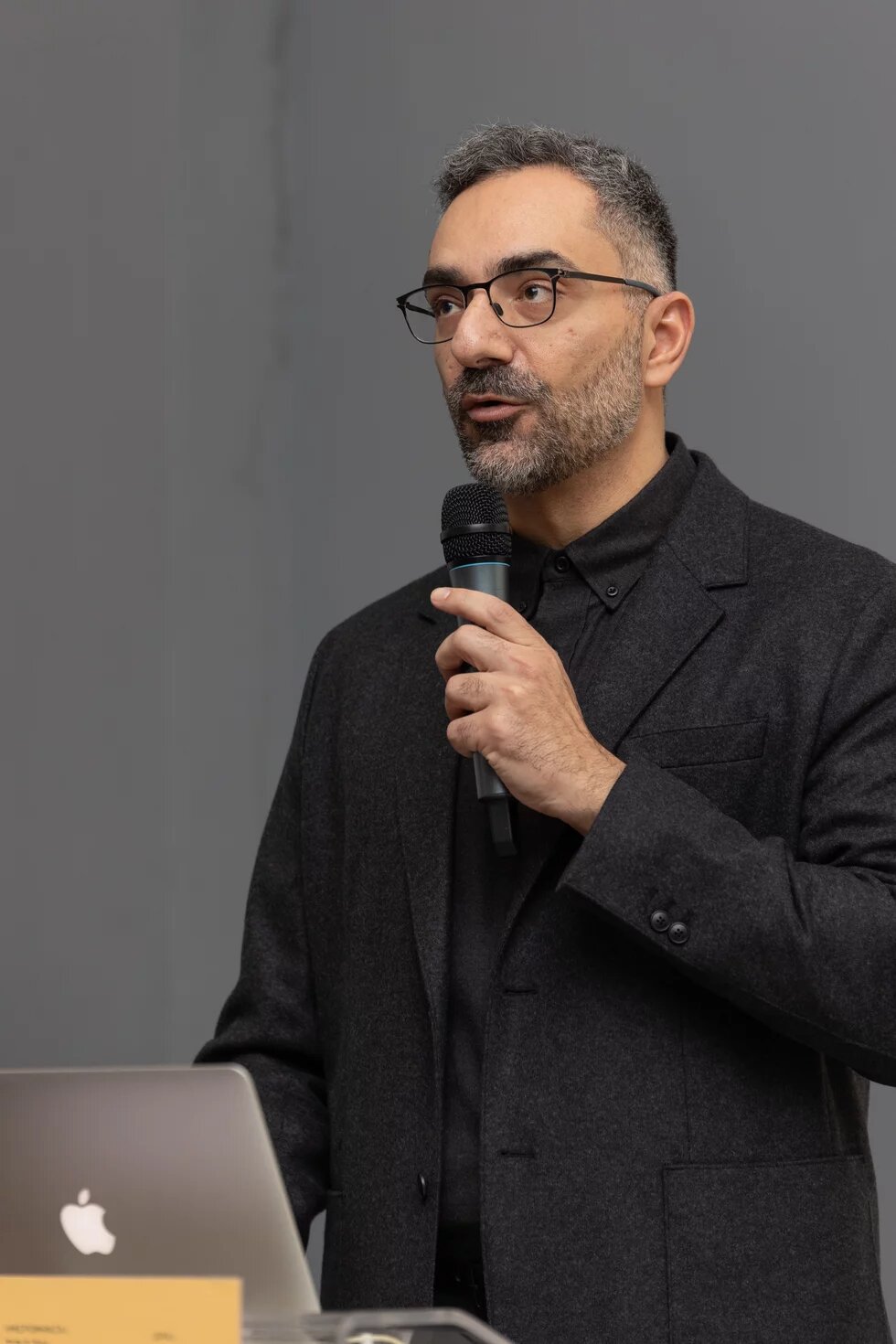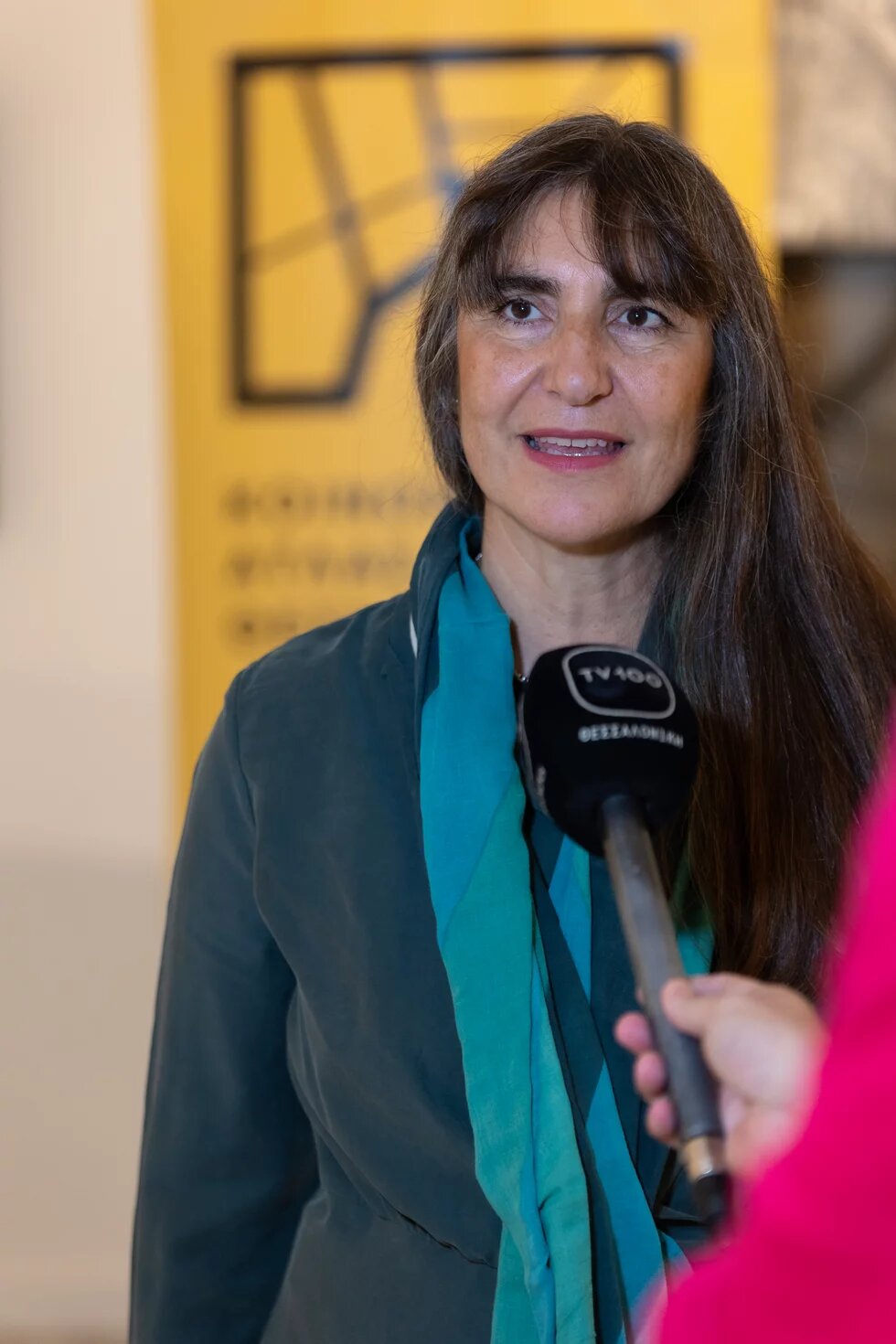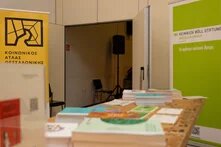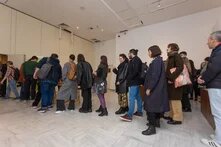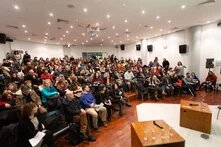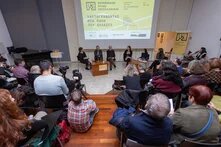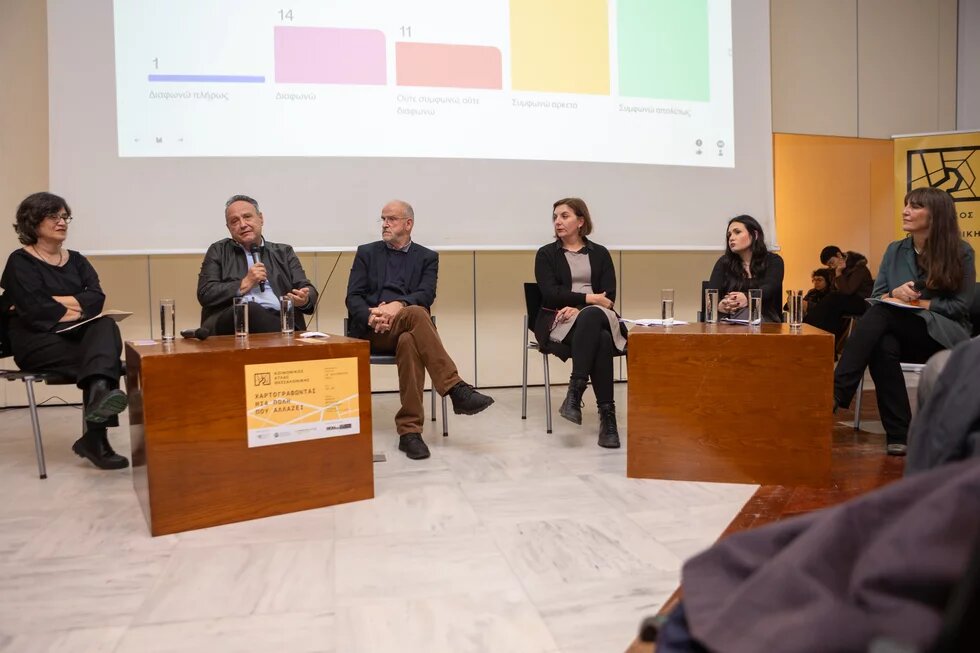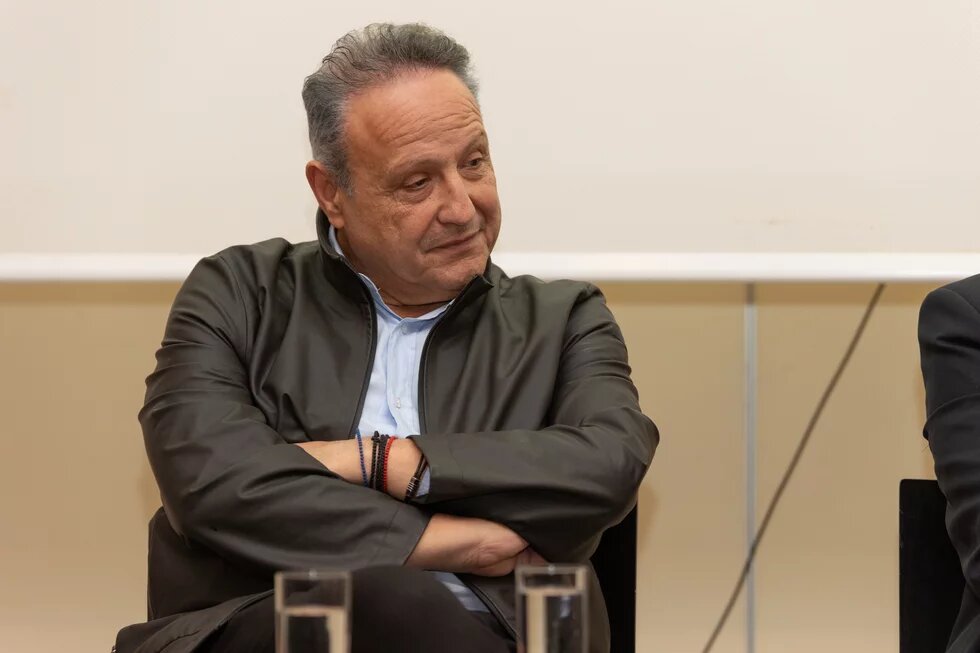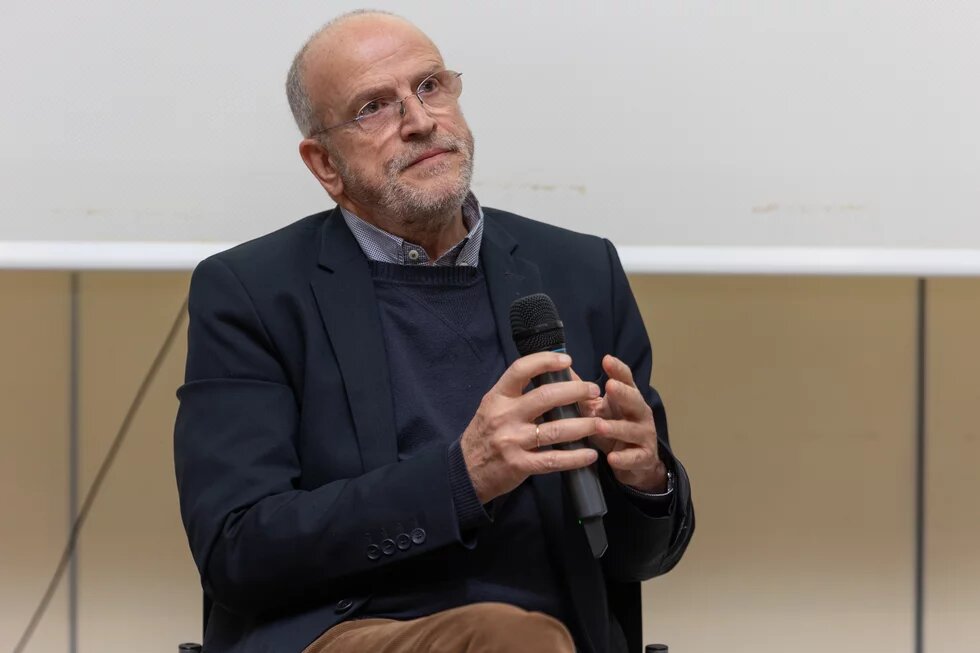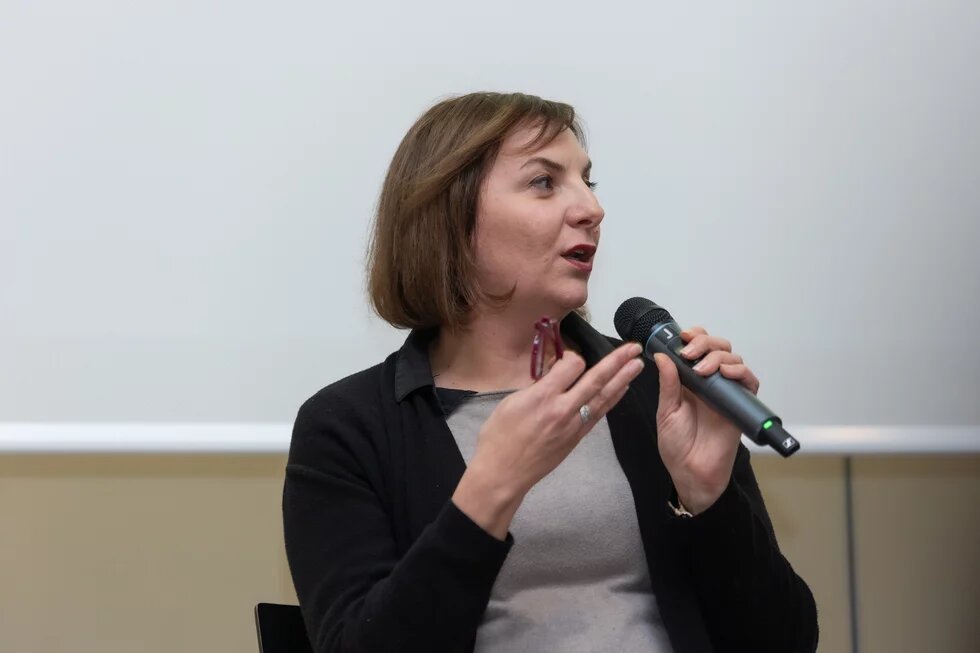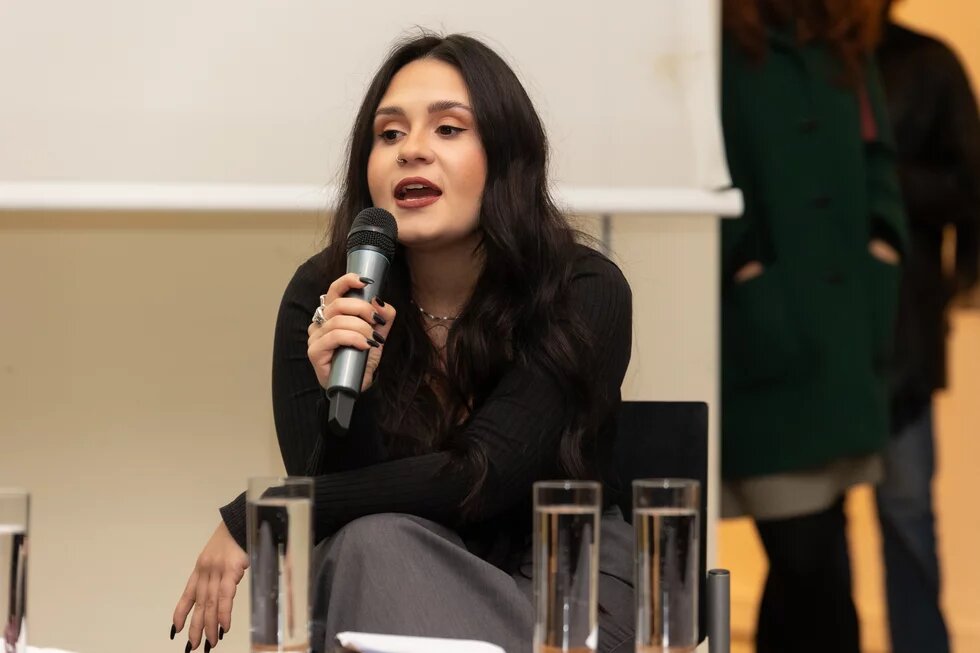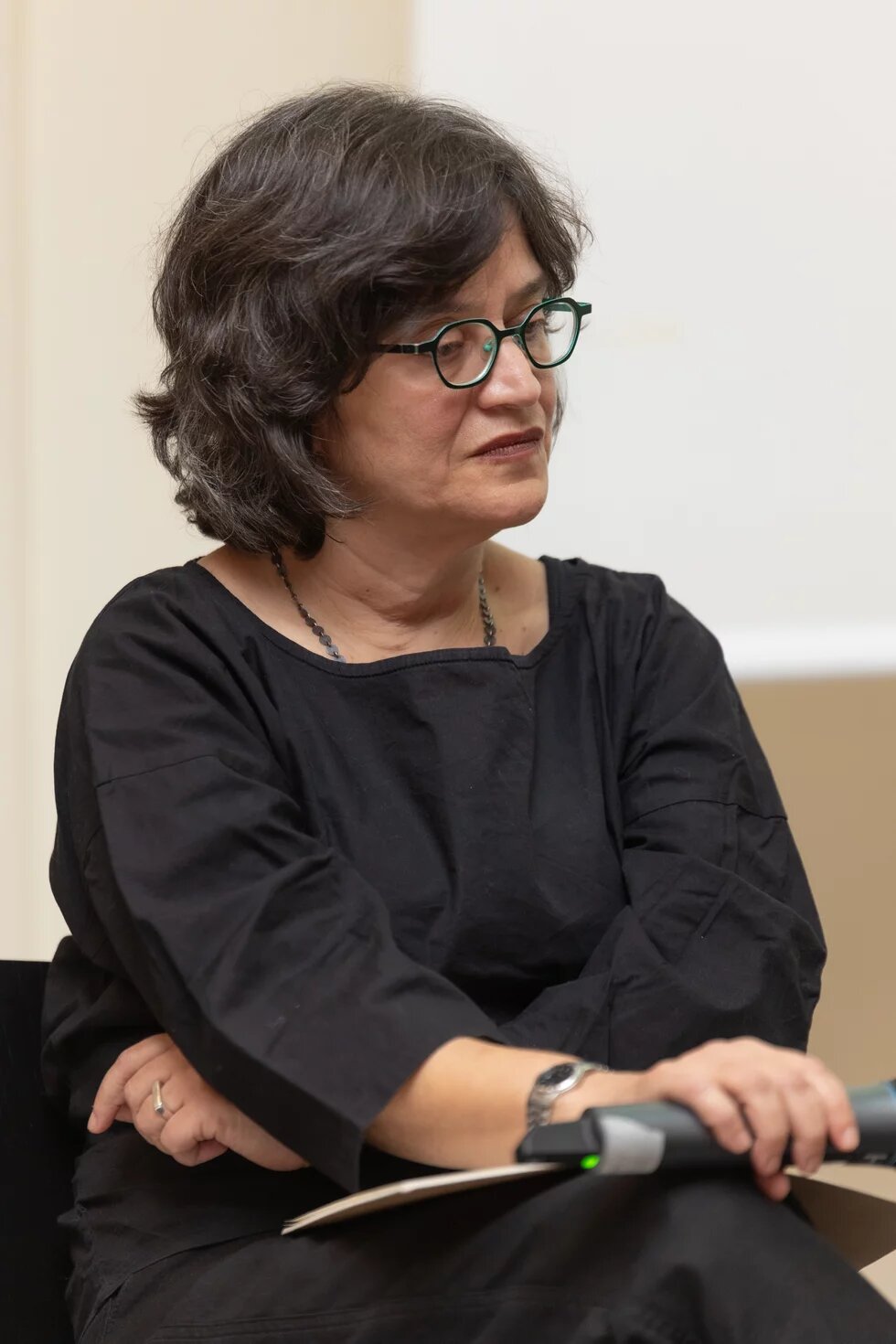
The Thessaloniki Social Atlas has begun its online “journey”, aspiring, among other things, to contribute to changing the tone and quality of public discourse about urban space and the social transformations taking place in the city. It aims to do so through well-documented article entries that will inform the scientific and academic community as well as policy makers and decision-makers, while also sharing this knowledge with the broader public.
The launch of this dynamic digital platform, conceived and developed by the Department of Urban and Regional Planning and Development of the Faculty of Engineering, School of Architecture at the Aristotle University of Thessaloniki (AUTH), with support from the Heinrich Böll Foundation, Thessaloniki Office – Greece, took place on Tuesday, December 10, 2024, during an event titled “Mapping a changing city”, at the packed “Xanthippi Heupel” Amphitheater of MOMus – Museum of Contemporary Art.
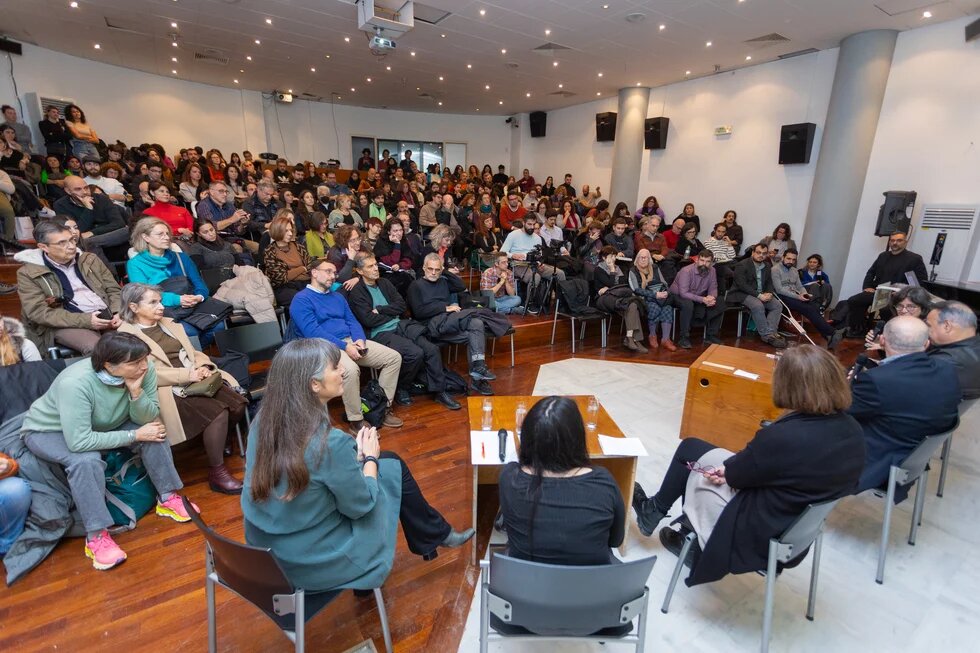
“A caring spirit for the city”
“This is a voluntary, collective project, diverse and not fixed in form”, explained Haris Christodoulou, Associate Professor at the Faculty of Engineering, School of Architecture at AUTH, director of the Department of Urban and Regional Planning and member of the scientific editorial team of the Atlas, as she opened the event. As Ms. Christodoulou underlined, “we started out in a caring spirit for the city, for what Thessaloniki is, for what happens daily in Thessaloniki or has happened in the past, and also with a mood for care for the knowledge produced about Thessaloniki at the city’s universities and at other universities, knowledge which is usually compartmentalized, sectoral, and lacking communication between the people who are caring about the city”.
From his side, Michalis Goudis, director of the Thessaloniki office of the Heinrich Böll Foundation, pointed out, among other things, that this new project can contribute to the discussion about how Thessaloniki should change to the dissemination of knowledge produced at AUTH, and to the restoration of trust in institutions. “There is a need for discussing beyond traditional dialogue frameworks and outside of party affiliations, so we can understand the city and transform it. The valuable knowledge produced by AUTH is crucial to go beyond academic boundaries and be combined with similar material generated by many agencies and groups across the city”, Mr. Goudis stated.
Stavros Spyrellis, a researcher at the National Centre for Social Research which is a scientific partner of the Thessaloniki Social Atlas, referred to the Athens Social Atlas, which inspired the Thessaloniki project, as well as to the international networking of similar Atlases through the Atlas Global Network. “The Athens Social Atlas has been online since 2016 and already contains 120 entries. Among other things, it serves as a ‘window’ to the city aa well as a very good tool for students. Through the Athens Atlas, we essentially removed the limitations of a printed edition. Similar projects are being implemented in various cities such as Rome, Cairo, Tirana, Naples, and Turin, in countries like Madagascar, and within groups of cities. These projects are networked through the Atlas Global Network”, Mr. Spyrellis noted.
The official presentation of the Thessaloniki Social Atlas was made by Loukas Triantis, Assistant Professor at the Faculty of Engineering, School of Architecture, AUTH and a member of the Atlas’s scientific editorial team.
Ten thematic categories
Mr. Triantis described the ten thematic categories included in the Thessaloniki Social Atlas and explained the importance of the mappings published on the platform. As he underlined, the entries contained in the platform “inform, document, and interpret”, while they may also “record divisions, differentiations, or inequalities”. Regarding what the mappings reveal, he noted: “they uncover hidden aspects and local experiences. They feed imagination and inspire through documentation. They point to policy directions, planning, and action”.
Currently, the Thessaloniki Social Atlas features 17 published entries, each corresponding to one or more of the following 10 thematic categories: People – Sociospatial Structure, History – Heritage, Arts – Urban Cultures, Economy – Production, Ecology – Environment, Housing – Built Environment, Public Space – Civil Society, Planning – Infrastructure – Development, Neighborhoods, Thessaloniki in the World.
As noted on the platform by the project contributors, “by placing emphasis on space and on the various geographic scales of the city, from neighborhoods to the broader urban complex, the Atlas welcomes contributions from the fields of urban studies, architecture and spatial planning, geography, sociology and anthropology, environmental studies, history, and the economic and political sciences”.
More than 250 attendees at the event were invited to contribute to the ensuing discussion via the online platform ‘mentimeter’, responding through their mobile phones to questions such as, “which city issue would you like to see covered with more data in an Atlas entry?” Among the most popular answers from the audience were: green spaces, social inequalities, public space, and mental health.
The roundtable discussion that followed, moderated by Haris Christodoulou and Evi Athanassiou, professor at the Faculty of Engineering, School of Architecture, AUTH, and a member of the project’s scientific editorial team, included the participation of Stelios Angeloudis, Mayor of Thessaloniki, Anastasia Chamalidou, representative of the Vardaris Neighborhood Group and reintegration coordinator for the Thessaloniki Self-Help Promotion Program, Thomas Maloutas, Emeritus Professor of Geography at Harokopio University and Myrto Toula, journalist.
“Thessaloniki must change rapidly”
Referring to Thessaloniki, Mr. Angeloudis emphasized that “unfortunately, it is changing slowly and remains stagnant on many issues related to urban sustainability, unlike what is happening in other countries”. He spoke of “damaged public spaces, a lack of greenery and accessibility”, and stressed that “Thessaloniki must change rapidly”.
The Mayor of Thessaloniki described examples of urban redevelopment that were designed without dialogue and, as he characteristically said, “turned into a tragedy”, referring to the case of the Ippokrateio Hospital area. “This redevelopment was designed with massive sidewalks, a median strip in the roadway, and no parking spaces at all, and it is already becoming a tragedy for the residents. A redevelopment that should have been a blessing for an area is now turning into a tragedy in our small but so important daily life”, he emphasized.
Speaking about the Thessaloniki Social Atlas, the Mayor emphasized that it is a highly participatory digital platform, and therefore, the authorities should take it into account, as it can reflect the average public perception of how citizens envision public space. “The Social Atlas is a digital meeting place for scientists, researchers, active citizens, and sensitive people. And it is truly a significant step toward amplifying an inclusive common ground. For it to gain momentum, we also need a movement-driven interest to build upon this platform, so that this knowledge and common ground can be disseminated”, the Mayor of Thessaloniki stated, among other things.
“A more participatory Atlas in Thessaloniki”
Thomas Maloutas, from the Athens Social Atlas, spoke about the platform that has been active since 2016 and served as the inspiration for the creation of the Thessaloniki Social Atlas. “In the Athens Social Atlas, from the very beginning, we set the important goal of highlighting the social dimension of the city. Because the social dimension of the things that happen in our lives and in our city does not usually lie at the center of attention. The Atlas is a contribution from the university and research to the public”, Mr. Maloutas said, among other things. He also commented on the differences he observed between the two Atlases, underlining the dynamic, participatory, and inclusive nature of the Thessaloniki project. “In Athens, we’re more macroscopic and less participatory. We opened up knowledge, but we didn’t bring the key players to the table, as you’ve done here, like, for example, including the city’s mayor in this very vibrant event. I think we’re going to... copy you”.
“Policies should consider people’s needs”
Anastasia Chamalidou, representative of the Vardaris Neighborhood Group and reintegration coordinator for the Thessaloniki Self-Help Promotion Program, called for “policies that take into account people’s needs” while describing the Thessaloniki Social Atlas as an important project that opens prospects for forming alliances. “The voices of residents are often perceived as complaints, and many times even as ‘noise’. We would like to see policies that take into consideration the people who use public space, the businesses, the residents, the families”, Ms. Chamalidou emphasized.
Journalist Myrto Toula mentioned that she remembers Thessaloniki as “a moving construction site made of sheet metal” and “a city that doesn’t change”. “There are so many people my age who were forced to leave for Athens or elsewhere, and that’s because we haven’t been given the space to create, to exchange ideas, to establish ourselves. But I’m not entirely pessimistic, because the people who remain here, for example those in the Vardaris Neighborhood, the Svolou Neighborhood, the Doxa neighborhood, are creating – and as a resident of the city center, I noticed, in recent years, that there is also a new trend of giving life to the areas above Egnatia Street”, Ms. Toula said, among other things.
Before its official launch, the Thessaloniki Social Atlas had the opportunity to “get acquainted” to local actors and personalities of the city through two participatory, interactive workshops held in recent months with the support of the Heinrich Böll Foundation, Thessaloniki Office – Greece. In these two workshops in which dozens of individuals and representatives of city agencies took part, prospects for collaboration were opened, ideas for entries were born, and databases and archives, both digital and print, were documented so that they could be utilized in the context of the project.

